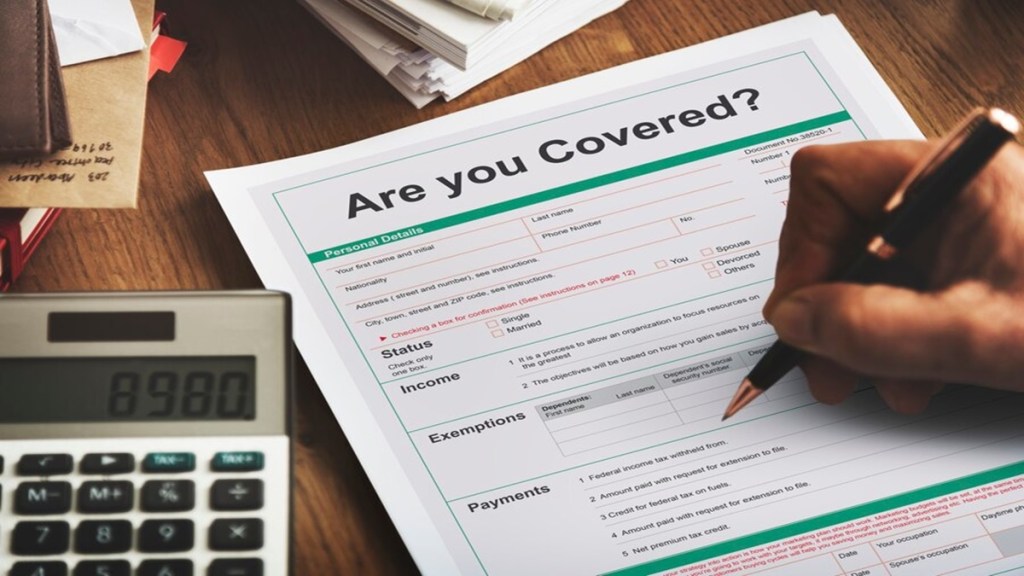In the post-pandemic era, more and more people are buying life insurance to financially protect their families as they now understand its importance in a better way. One of the basic types of life insurance is term insurance. In term insurance policies, the insurance company pays the insured amount to the policyholder’s family or beneficiary in case of insured individual’s death during the policy period.
However, choosing the correct term insurance policy requires careful consideration. The process can be confusing and intimidating, making it essential to be aware of common pitfalls.
“Caring for loved ones involves ensuring their financial security, especially in today’s world of uncertainties. Term insurance is a straightforward and affordable way to provide this security. It offers coverage for a specific period, or ‘term’; and pays out if the policyholder is no longer,” says Rahul Malodia, a chartered accountant and founder & CEO, Malodia Business Coaching.
While buying a term insurance, one should keep in mind important points like premium amount for a certain coverage, settlement ratio, returns guaranteed or non-guaranteed and other features to make the best decision for your family’s future.
Also read: Edelweiss Tokio Life Insurance rebranded as… : Here’s what CEO has to say on the big move
Malodia shared his insights and some of the key points need to be considered while buying a term insurance:
Delay in getting term insurance
Procrastination can be costly. The longer you wait to buy term insurance, the higher the premiums will be. As you age, health issues may also arise, leading to higher premiums or even denial of coverage. It’s wise to secure a policy as soon as possible to get lower rates and ensure protection for your loved ones. For example, a healthy 30-year-old might pay significantly less than a 40-year-old with similar health.
Low amount premium
Choosing the lowest premium might seem like a wise financial decision, but it can be misleading. Low premiums often mean limited coverage. It is essential to have sufficient money to cover your family’s financial needs, such as mortgage payments, children’s education, and living expenses. One’s term insurance amount should be at least 15-20X of the annual income.
For instance, if you’re earning Rs 3 lakh per year, your coverage should be around Rs 60 lakh.
Choosing limited pay insurance
Limited pay insurance allows you to pay premiums for a shorter period, such as 10 or 15 years, instead of the entire term. While this might sound appealing, it can be more expensive. The premium costs are higher because you’re paying off the policy quickly. Therefore, evaluate whether your budget can handle higher payments in the short term without compromising your financial stability. Instead of paying higher premiums for a limited time, use that extra money
for investments.
Taking whole life insurance
Whole life insurance covers your entire life and includes a savings component. However, it is much more expensive than term insurance. Many people buy whole life insurance, thinking it’s a better investment. If your primary goal is to provide financial security for your family when you are not there, term insurance is often the more cost-effective option. Use the money saved from lower premiums to invest elsewhere.
Take riders wisely according to budget and need
Riders are add-ons to your term insurance policy that provide extra coverage, such as critical illness or accidental death benefits. While they seem beneficial, they also increase the cost of your policy. Instead of adding multiple riders, purchasing standalone policies for specific needs might be more economical. For example, a separate critical illness policy could offer more comprehensive coverage than a rider.
Claim settlement ratio
The claim settlement ratio indicates the percentage of claims an insurance company has paid. A low ratio might signal potential difficulties in getting claims approved. Choose an insurer with a high claim settlement ratio to ensure your beneficiaries receive the benefits without hassle.
Researching the insurer’s history and reading reviews is essential to understand their reliability.
Choosing the wrong option
Selecting the wrong term insurance policy can have serious consequences. Before deciding, assess your financial situation, future needs, and the policy’s features. Consult with a financial advisor if necessary. For instance, a young, single person might need less coverage than someone with a family and a mortgage. Make sure the policy you choose aligns with your long-term financial goals.
Not telling family members
Once you have a term insurance policy, inform your family members about it. They need to know the policy details, including the insurer, policy number, and how to file a claim. Please communicate this information to avoid delays or complications when claiming it. Remember to keep a copy of the policy documents in a secure and accessible place.
Conclusion:
Term insurance is an excellent way to ensure financial security for your loved ones. However, making informed decisions is crucial. Avoid delays, provide adequate coverage, consider the long-term costs and benefits, and keep your family informed. By being cautious and well-informed, you can choose a term insurance policy that provides your family peace of mind and financial protection.

